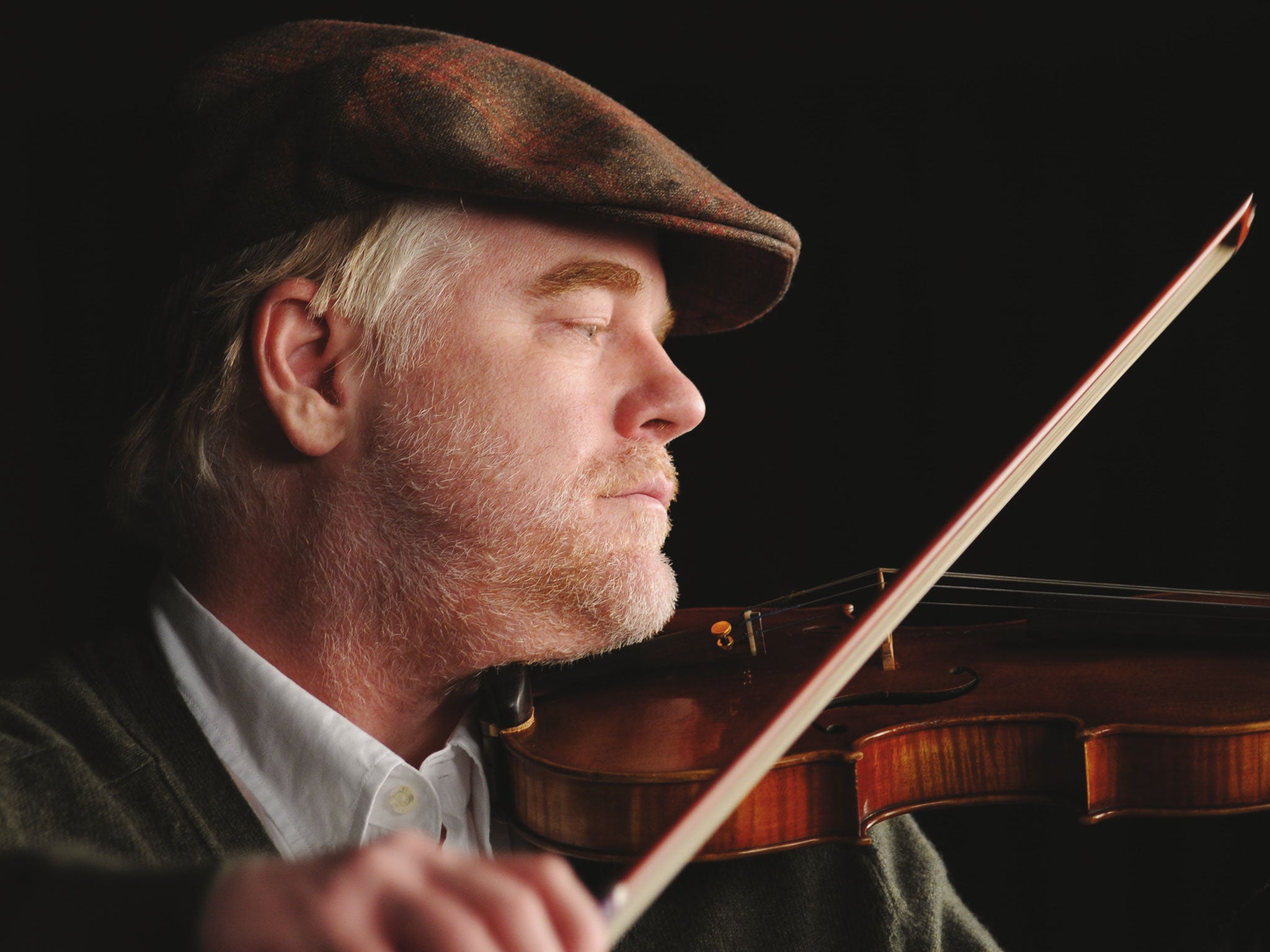Film review: A Late Quartet - A musical soiree so civilised, it calls for wine and cheese

With all due respect to Hansel & Gretel: Witch Hunters and G.I. Joe: Retaliation, it's a relief sometimes to see a film as grown-up as A Late Quartet, a drama set in the rarefied world of chamber music.
Its four main characters have played in a leading string quartet for 25 years, but just as they begin rehearsals for a new season, their paternal cellist, Christopher Walken, is diagnosed with Parkinson's. He insists on quitting the group and selecting his replacement. The phlegmatic first violinist, Mark Ivanir, agrees without hesitation. The second violinist, Philip Seymour Hoffman, demands a turn at playing first violin himself. But the group's violist (and Hoffman's wife), Catherine Keener, wants things to continue as they are, with Walken in situ.
Not to be confused with Dustin Hoffman's Quartet, which came out in January, A Late Quartet is even more swish and civilised than that précis might suggest. Many of its scenes take place in tasteful apartments on Manhattan's Upper West Side (or certainly the Upper bit of some Side or other), but at one point two characters admire a Rembrandt self-portrait in the Frick Collection, just because that's the sort of film they're in. There's a cameo by Anne Sofie von Otter to bolster the project's classical credentials, and another cameo by Wallace Shawn, a Woody Allen regular, as if in tribute to the mayor of this particular neighbourhood. Any cinema showing the film should serve wine and cheese.
But as welcome as all this classiness is, there's nothing in A Late Quartet that's going to make you spill your claret. Yaron Zilberman, a first-time writer-director, has delivered a humane, well-researched and impeccably acted study of the strains of a long-term working relationship, but it proceeds in an all-too-orderly fashion, with no changes in volume or tempo. And it's never impolite enough to reveal any hidden depths to the characters. Throughout the film, Ivanir remains the cool perfectionist, Hoffman, the under-appreciated lump, Keener, the overwrought nag, and Walken the benign father figure. (I know, Christopher Walken as a benign father figure – who'd have thought it?) When the actors play their instruments, their miming is commendable without ever being convincing, and when they're arguing over their future, there's a similar sense that they're going skilfully through the motions.
Surrounded by Oscar nominees, the ensemble's virtuoso turns out to be Imogen Poots, a young British actress who co-stars as Keener and Hoffman's daughter. She creates the only character with more than two emotions available to her, and she also nails her American accent and appears to know her way around a violin. She's obviously got a few strings to her bow.
The influence of Steven Spielberg's early output is plastered all over two of this week's Hollywood offerings, both of which involve supernatural goings-on among bike-riding, mop-topped Middle-American children. In The Odd Life of Timothy Green (Peter Hedges, 104 mins, U *), a live-action Disney film, Jennifer Garner and Joel Edgerton are so desperate to be parents that a 10-year-old boy sprouts in their garden with leaves on his legs. As much as that might sound like the set-up for a horror movie, it's aiming to be a modern-day fairy tale, and yet there's nothing magical or even interesting about Timothy except his crural foliage. His arrival has so little impact on his adoptive parents and their friends that he might as well not have bothered.
The parents in Dark Skies (Scott Stewart, 97 mins, 15 *) have two sons, but various spooky occurrences (self-stacking crockery, an avian mass suicide) persuade them that those sons are about to be abducted by aliens. A film that could have been called "Close Encounters with ETs of the Poltergeist Kind", Dark Skies doesn't have a plot, just a series of haunted-house scares, none of which would serve any purpose to an extra-terrestrial invader. Luckily, a conspiracy theorist (J K Simmons) is on hand to explain that the aliens' pranks seem pointless because they're "beyond our comprehension". So that's all right, then.
Subscribe to Independent Premium to bookmark this article
Want to bookmark your favourite articles and stories to read or reference later? Start your Independent Premium subscription today.

Join our commenting forum
Join thought-provoking conversations, follow other Independent readers and see their replies